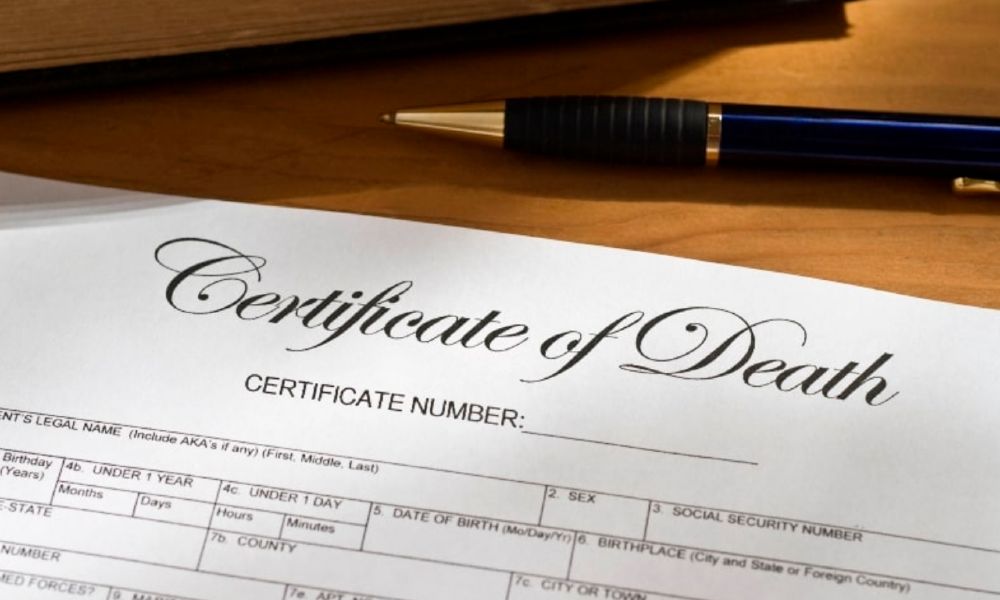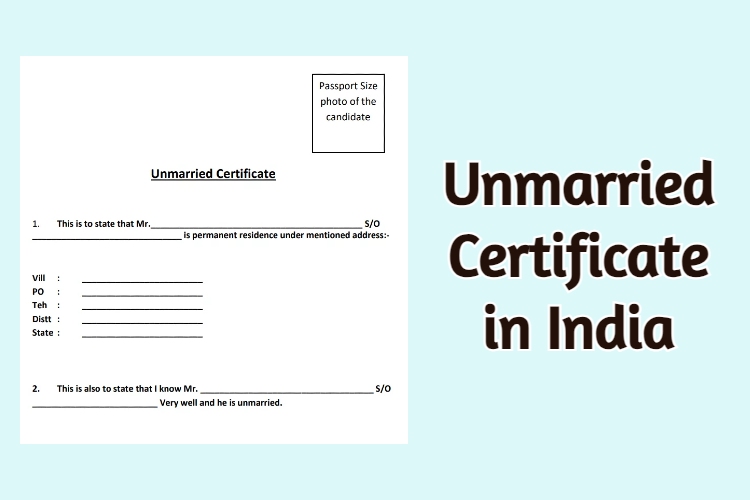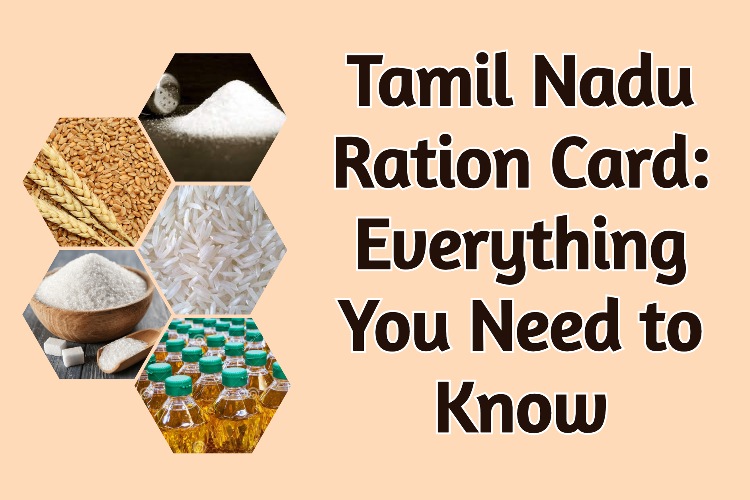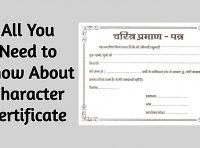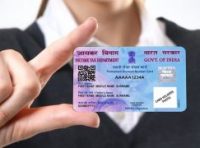A death certificate is an official document that verifies an individual’s death. It is issued by local authorities and is mandatory in this day and age. Every death has to be mandatorily be registered with the local authorities, who then issue the death certificate.
How to get a death certificate?
Death certificates are issued by the local authorities once certain procedures have been completed. Here’s a step-by-step guide to obtaining a death certificate:
- Visit the office of your local body, such as the municipality or Panchayat office, and get an application form from there.
- You will need to fill in important details, like the name of the deceased person, time and place of death, and so on, in the form.
- Add the necessary documents like age proof, address proof, and other details along with the form.
- To ensure that the death was natural, local authorities also need the hospital’s letter. Ensure you get that letter, and also check whether specifices related to the death, such as the place of death or who certified the death at the burial grounds or crematorium, is mentioned.
- Submit the application form, along with the documents and the hospital letter, to the Registrar of Deaths within 21 days. If you don’t do it within 21 days, you’ll need to pay a fee.
- The Registrar will then authenticate the documents and put it in his/her records.
- Within a couple of months, you will be notified that the death certificate has been made. You can then collect it from the relevant office.
Can you get a Death Certificate online?
Yes. Every state and district has provisions in place to help citizens collect a death certificate online. You can visit your state or districts official website and get a form from there. Carefully fill it and then submit it online, along with all the relevant documents. If everything is on point, you should receive the death certificate within a few weeks.
What is the need for a Death Certificate?
Many people question the need for a death certificate at all. However, it is an extremely important document that comes in handy in a variety of situations. Some of them are listed below:
- To claim pension
If the person enjoying a monthly pension suddenly passes away, his or her spouse can benefit from the pension amount only if a valid death certificate is produced. So the document ensures that the deceased individuals’ loved ones money doesn’t lapse and is used by his or her loved ones.
- To settle property disputes
A death certificate can also help settle a property dispute. If the deceased individual passes away without changing the name on his or her property, his or her children can only benefit from the property if they can produce the deceased individuals’ death certificate.
- To claim life insurance
Life insurance proceeds are only given out on producing a death certificate. So the beneficiaries of the decreased individual will need to submit the death certificate to the insurance company, in order to access the life insurance amount.
Key Documents Required:
The full list of documents needed to obtain the certificate can differ slightly from one state to the next. However, a few main documents remain the same regardless of the state in which the death certificate application is submitted. A shortlist of key documents needed for obtaining the death certificate is as follows:
- Declaration form in the specified format by a close relative or family member
- Duly filled Application form
- Proof of deceased’s address
- Medical Certificate for the cause of death.
- Copy of crematorium or funeral receipt.
Self-attested copy of any one of the following documents:
- Aadhaar Card
- Voter ID
- Ration Card
- Passport
- Electricity/Gas/Water/Telephone Bill
- Any Govt. recognized document
Format of Declaration Form
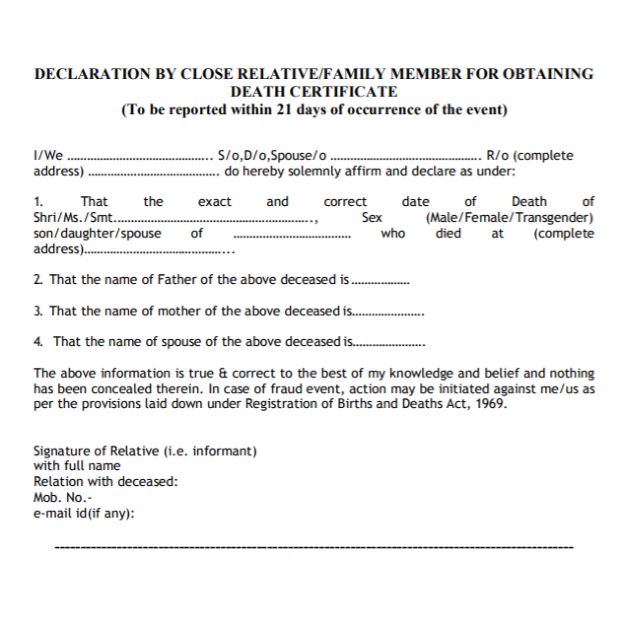
Following is a list of government websites where you can apply for a Death Certificate online:
| Sr. No. | State | Online Portal |
|---|---|---|
| 1 | Andhra Pradesh | Official Portal of Andhra Pradesh |
| 2 | Arunachal Pradesh | e-Services Portal of Arunachal Pradesh |
| 2 | Assam | e-District Services Portal of Assam |
| 3 | Bihar | RTPS Portal of Bihar |
| 4 | Chhattisgarh | e-district Portal of Chhattisgarh |
| 5 | Goa | Online Portal of Goa |
| 6 | Gujarat | Digital Gujarat Portal of Gujarat |
| 7 | Haryana | e-Disha Portal of Haryana |
| 8 | Himachal Pradesh | e-District Portal of Himachal Pradesh |
| 9 | Jharkhand | JharSewa Portal of Jharkhand |
| 10 | Karnataka | Nadakacheri-AJSK Portal of Karnataka |
| 11 | Kerala | Akshaya Portal of Kerala |
| 12 | Madhya Pradesh | e-District Portal of Madhya Pradesh |
| 13 | Maharashtra | Aaple Sarkar Portal of Maharashtra |
| 14 | Manipur | e-District Portal of Manipur |
| 15 | Meghalaya | e-District Portal of Meghalaya |
| 16 | Mizoram | e-District Portal of Mizoram |
| 17 | Nagaland | e-District Portal of Nagaland |
| 18 | Odisha | e-District Portal of Odisha |
| 19 | Punjab | State Portal of Punjab |
| 20 | Rajasthan | e-Mitra Portal of Rajasthan |
| 21 | Sikkim | e-Services Portal of Sikkim |
| 22 | Tamil Nadu | e-Sevai Center of Tamil Nadu |
| 23 | Telangana | MeeSeva Portal of Telangana |
| 24 | Tripura | e-District Portal of Tripura |
| 25 | Uttar Pradesh | e-Saathi Web Portal or e-Saathi Mobile App |
| 26 | Uttarakhand | e-District Portal of Uttarakhand. |
| 27 | West Bengal | e-District Portal of West Bengal |
| 28 | Andaman and Nicobar Islands | Official Portal of Andaman & Nicobar Administration. |
| 29 | Chandigarh | Sampark Portal of Chandigarh |
| 30 | Dadra and Nagar Haveli | Official Portal of Dadra and Nagar Haveli Administration |
| 31 | Daman and Diu | Official Portal of Daman and Diu Administration. |
| 32 | Delhi | e-District Portal of Delhi. |
| 33 | Jammu and Kashmir | Revenue Department of Jammu and Kashmir. |
| 34 | Ladakh | Official Portal of Ladakh |
| 35 | Lakshadweep | Official Portal of Lakshadweep |
| 36 | Puducherry | e-District Portal of Puducherry. |

